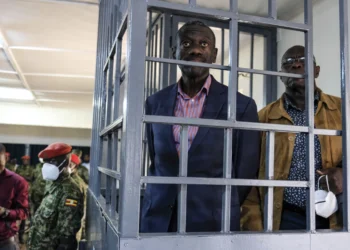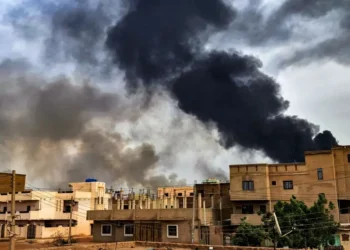The International Monetary Fund (IMF) has urged African leaders to gather strong political will to improve government and accountability on the continent.
Even though the Fund admitted that there is some improvement in governance and accountability on the continent over the years, “we have miles to go in our efforts. And it is a long process that requires strong political will and consistent efforts over time”.
Deputy Managing Director of the IMF, Antoinette M. Sayeh, said the issue of good governance and transparency is more than just about wasted money but it is about the erosion of a social contract and the corrosion of the government’s ability to grow the economy in a way that benefits all citizens.
She made this known in her remarks at a High-Level Conference on the Promotion of Good Governance and Fight Against Corruption in Botswana today, June 13, 2022.
Antoinette Sayeh highlighted that corruption has long been an issue but today, “we face multiple crises at once – the COVID-19 pandemic, the war in Ukraine, and the ongoing challenges of climate change and the security situation in the Sahel”.
As such, she stressed that “the need for good governance has only become more urgent”.
“These multiple crises have made it very clear that countries that have strong economic institutions could respond more effectively to these challenges and better prepare for a resilient recovery — and that is true across any level of development.
“We also recognize that addressing corruption is an international issue, given the role of professions that enable corruption and jurisdictions that provide safe harbor for the proceeds of corruption”.
Antoinette M. Sayeh
Enhanced framework on governance and corruption
Deputy Managing Director of the IMF disclosed that the Fund is stepping up its engagement with the region on governance and anti-corruption issues. The Fund’s enhanced framework on governance and corruption, approved in 2018, builds on lessons learned in over 20 years.
She noted that the Fund’s efforts focus on reducing vulnerabilities to corruption relies on strengthening governance in six core state functions: central bank governance, financial sector governance, fiscal governance, market regulation, rule of law, and anti-money laundering.
Antoinette Sayeh indicated that in any policy dialogue with member countries, the IMF looks at the strength of these countries’ anticorruption framework—especially whether it is aligned with the specific issues confronting a country—and work with them on policy options to strengthen governance and anticorruption frameworks.
She however, added that “we go beyond policy advice. At the request of country authorities, we also provide technical assistance and training to policymakers in this area”.
“The IMF also adapted and stepped up this work in response to the COVID crisis. When the pandemic first hit, the IMF took immediate steps to help member countries save lives and livelihoods. Our message was: ‘spend what you must, but keep the receipts’, — prioritize urgent financing while preserving accountability and transparency”.
Antoinette M. Sayeh
Deputy Managing Director of the IMF further disclosed that the Fund set out a few parameters for countries. First, countries receiving IMF emergency financing must commit to transparency and accountability safeguards.
This includes publishing COVID-19 related procurement contracts — including beneficial ownership of companies, conducting and publishing audits, and detailed reporting on COVID spending.
Also, in cases of severe governance weaknesses, “we worked with authorities to ensure remedies would be taken”, she noted.
For countries receiving emergency assistance that have multi-year IMF financing arrangements, she pointed out that the IMF continues to closely engage with them on longer-term structural governance and corruption matters.
The Fund also engages with non-state actors, which can often provide valuable insights into governance issues, she added.
She assured that IMF is firmly committed to being a trusted partner to compliment efforts by member countries to ensure good governance and accountability on the continent.
READ ALSO: Inflation Will Continue To Rise Unless Gov’t Reduces Taxes On Petroleum Products – Economist





















